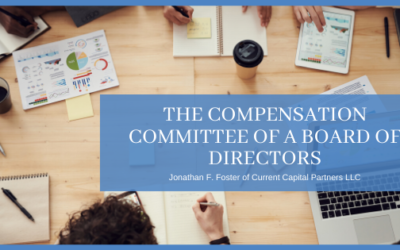A Deeper Look Into Understanding CEO Succession
Boards oversee management on behalf of the shareholders. Therefore, CEO succession is one of the board's most important responsibilities. Without the right leader, even the most innovative companies will struggle. The succession process a board follows can be...
The Use and Function of a Special Committee of a Board
The complexity and legal implications of an M&A agreement are such that any material conflicts should be avoided for all parties. It falls to a board of directors to evaluate and negotiate transactions as part of its fiduciary duties to a company. To that end, a board can and should appoint a special committee of independent directors if there are significant potential conflicts.
Mergers & Acquisitions: An Important Covenant in a Purchase Agreement
In the period between the execution of definitive documentation for an acquisition and the intended closing, it is important to be aware of the “ordinary course” covenant often included in purchase agreements.
Take-Aways for Boards of Directors from the COVID-19 Pandemic
The COVID-19 pandemic has tested businesses’ ability to respond to a crisis and deal with internal and external consequences. Many boards have effectively overseen companies through these extraordinary circumstances, guiding and adapting crisis management plans. Additionally, communications and transparency between boards, management, shareholders, and employees have been tested.
Retirement Ages for Board Members
Although the United States generally does not mandate retirement at a certain age, specific industries and occupations have such requirements, including for airline pilots. Statistics show that 63% of workers retire between the ages of 57 and 66, with 62 as the minimum age to collect social security.
The Pandemic & the Format of Annual Meetings
The necessity of having virtual shareholder meetings this past proxy season due to the COVID-19 pandemic has further questioned the necessity of the in-person annual meeting.
A Key, Sometimes Overlooked Committee: The Governance Committee
A board of directors typically appoints a governance committee responsible for recruitment, onboarding, training, and director assessments. This committee may have responsibilities for compliance, risk, conflict matters, and other topics, too. The governance committee...
The Delaware Chancery, Supreme Courts, and Their Importance
Rulings from the Delaware Court of Chancery and the Delaware Supreme Court have become the foundation for corporate law and a critical guide for corporate governance. Over one million businesses today list Delaware as their legal home, including roughly two-thirds of the Fortune 500. It has been the principal state where businesses have registered since the early 1900s.
The Compensation Committee of a Board of Directors
Oversight of management is one of the board of director’s primary responsibilities. This includes hiring, monitoring, evaluating, and compensating the senior team. Most boards establish a compensation committee to be responsible for this important topic. Often, the committee retains an independent compensation consulting firm for advice.
The Importance of the Audit Committee
Effective governance includes a board of director’s ability to play a role in helping to maximize long-term shareholder value. In general, a board’s primary responsibilities are to oversee management, strategy, and financial reporting and compliance.










